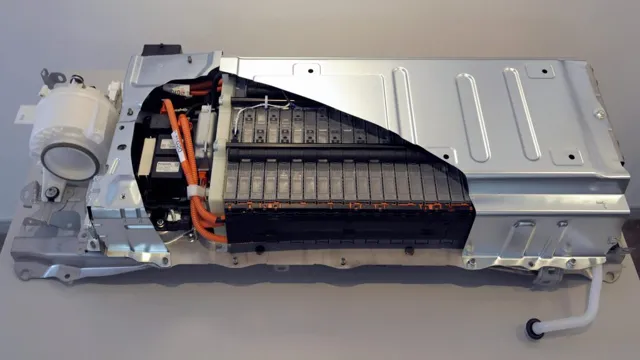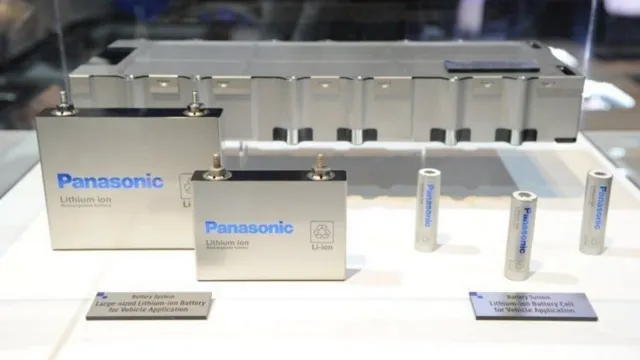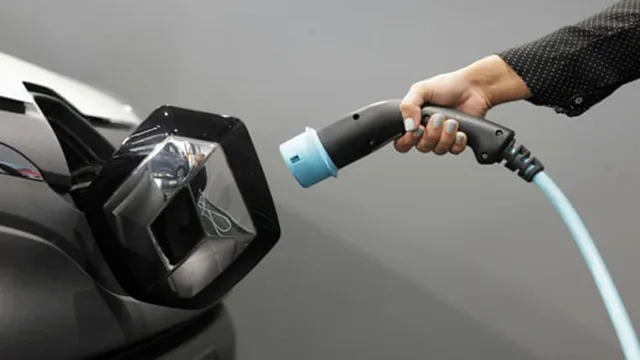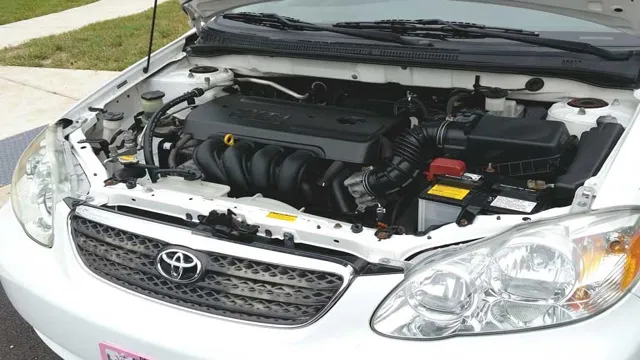The Power Beneath the Wheels: Decoding the Battery Technology Used in Electric Cars
Electric cars have become increasingly popular in recent years due to their many benefits. Not only do they significantly reduce harmful emissions, but they also provide a smoother and quieter driving experience. The power of electric cars lies in their ability to revolutionize the way we think about transportation and energy consumption.
As the world shifts towards renewable energy sources and sustainability, electric cars are at the forefront of this movement. But what makes electric cars so special and why are they becoming the preferred choice for many drivers? In this blog, we will explore the power of electric cars and how they are changing the future of transportation.
The Battery’s Role
The battery used in electric cars plays a crucial role in powering the vehicle. Unlike traditional cars that run on gasoline and rely on engines, electric cars rely on batteries to generate power for the motor. The battery acts as the heart of the car, providing the necessary energy to convert the stored power into movement.
The type of battery used in electric cars varies depending on the make, model, and age of the car. Some of the more common types of batteries include Lithium-ion batteries, Nickel-Metal Hydride batteries, and Lead-Acid batteries. Regardless of the type of battery, it’s crucial to keep it properly charged and maintained to ensure optimal performance and longevity.
Batteries can also impact the range and speed of the vehicle, so it’s essential to choose a battery that suits your needs and driving habits. With proper care and maintenance, a battery used in an electric car can last for several years and help you reduce emissions while saving money on fuel costs.
Battery Composition and Types
A battery is an electrochemical device used to store energy that can be converted to electrical power for various purposes. The composition of a battery can vary depending on its type and intended use. Generally, batteries consist of one or more electrochemical cells that convert stored chemical energy into electrical energy.
The three main components of a battery are the anode, cathode, and electrolyte. The anode is a negative electrode that gives off electrons, while the cathode is a positive electrode that collects electrons. The electrolyte is a solution or paste that provides a medium for ion transfer between the anode and cathode.
There are several types of batteries, including primary batteries that are single-use and secondary batteries that are rechargeable. Primary batteries are commonly found in household items such as flashlights, remote controls, and toys. These batteries are composed of a variety of chemical elements such as zinc, manganese dioxide, and lithium.
Secondary batteries, also known as accumulators, are commonly used in portable electronic devices such as smartphones and laptops. These batteries are typically composed of lead-acid, nickel-cadmium, or lithium-ion. The role of a battery is critical in today’s society as it provides portable power for a wide range of devices.
Without batteries, many modern conveniences such as smartphones, laptops, and electric cars would not be possible. The technology behind batteries continues to evolve, with new materials and designs being developed to improve energy storage and efficiency. As the demand for portable power continues to grow, battery technology will become an increasingly important area of research and development.
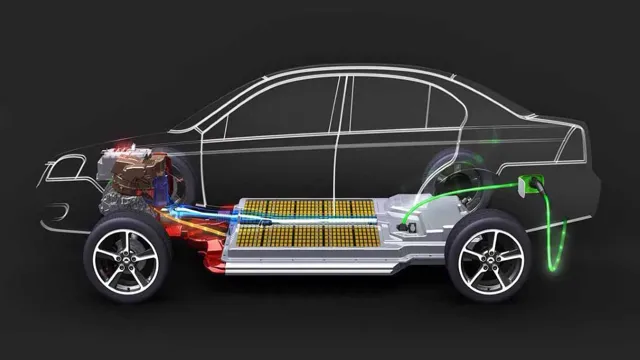
Battery Efficiency and Range
When it comes to electric vehicles, the battery is the heart of the car. It is not only responsible for the power that propels the vehicle forward, but it also plays a crucial role in determining the range that the car can achieve. As such, battery efficiency is a critical factor that affects the overall performance and functionality of an electric vehicle.
The battery’s capacity, chemistry, and temperature control are all significant factors that influence its efficiency and range. Manufacturers are continually investing in research and development to come up with more efficient batteries that can offer longer ranges and shorter charging times. With advancements in battery technology, electric vehicles’ range is expected to continue improving, making them a more viable option for mainstream consumers.
Battery Life and Sustainability
Battery used in electric cars has become a crucial component for manufacturers to balance between battery life and sustainability. The rise of electric cars has revolutionized the automobile industry and has shown how renewable energy can be used to power vehicles. However, the lifespan of the battery used in electric cars has long been a topic of discussion regarding sustainability.
Many electric cars have recently switched to using lithium-ion batteries that can last longer, have a high energy density, and can be charged faster compared to other types of batteries. The use of recycled materials in battery manufacturing and the possibility of repurposing old electric car batteries for energy storage systems further paves the way to a future of sustainable transportation. With continued innovation and research, we can hope to see even more effective and eco-friendly battery alternatives in the near future, making electric cars a truly sustainable and energy-efficient mode of transportation.
Lifespan of Electric Car Batteries
Electric car batteries have come a long way in recent years, and their lifespan has notably increased. The average electric car battery can last for about 8-10 years, depending on various factors such as usage, maintenance, and environmental conditions. However, there are also several factors that can negatively impact the battery’s lifespan, such as excessive heat and cold temperatures, frequent fast charging, and improper maintenance.
It’s essential to take proper care of your electric car battery to ensure that it lasts as long as possible, allowing you to get the most out of your investment. Additionally, electric car battery recycling is an increasingly sustainable and eco-friendly practice that helps reduce the carbon footprint of the automotive industry. As electric cars become more popular, battery technology will continue to improve, leading to longer lifespans and more sustainable practices in the future.
Recycling and Disposal of Batteries
Battery life is important to consider when it comes to sustainability and recycling. As technology advances, the lifespan of batteries has increased, but they still eventually lose their charge and need to be disposed of properly. This is where sustainability comes into play.
It’s essential to reduce waste by using rechargeable batteries whenever possible and avoiding single-use batteries. When it’s time to dispose of old batteries, it’s important to know that they contain harmful toxins that can pollute the environment if not handled correctly. Recycling batteries can preserve resources, prevent pollution, and reduce greenhouse gas emissions.
So, the next time you use a battery, think about its life and how you can promote sustainability in the disposal process.
Upcycling and Second-Life Applications
When it comes to sustainability in technology, one area that often gets overlooked is the battery life of devices. The constant need to recharge our smartphones, laptops, and other gadgets adds up to a significant amount of energy consumption. However, upcycling and second-life applications offer a solution to this problem.
By repurposing old batteries and giving them a second life in other devices such as flashlights or remote controllers, we can reduce the amount of waste produced and extend the life cycle of the batteries. It’s like giving a second chance to something that was once considered out of date. By doing so, we can save resources, reduce our carbon footprint, and contribute to a more sustainable future.
So next time you think about throwing away an old device with a dead battery, consider donating it or finding creative ways to repurpose it and give it a new life.
Future of Electric Car Batteries
The future of battery used in electric cars is looking very bright indeed! With the ongoing development of battery technology, we can expect electric cars to become even more efficient, powerful, and practical than they are already. One exciting development in this area is the increasing use of solid-state batteries, which are much safer and more durable than traditional liquid-based batteries. Another promising trend is the use of new materials and designs that can dramatically increase the energy density of the batteries, meaning that they can store more energy in a smaller space, resulting in longer driving ranges and more power.
In the coming years, we can expect battery technology to continue to improve and evolve, making electric cars more accessible and appealing to a wider range of consumers than ever before. Who knows, maybe even owning an electric car will become as common as owning a cell phone!
Advancements in Battery Technology
The advancements in battery technology are revolutionizing the automotive industry, especially in electric cars. Gone are the days of limited range and long charging times, as manufacturers are now experimenting with new battery chemistries, such as solid-state batteries, to address these issues. The future of electric car batteries looks bright, with promises of longer ranges, faster charges, and increased energy density.
With improvements in battery management systems, we could see electric cars becoming even more efficient and affordable, making them a viable option for a wider audience. It’s an exciting time for the industry and the environment, as battery technology continues to evolve and bring us closer to a cleaner, greener future.
Impact on Environment and Society
The future of electric car batteries is looking bright, both for the environment and society as a whole. As electric cars continue to become more popular, the demand for reliable and efficient batteries is growing. Fortunately, there are many exciting developments in this area, with new technologies emerging that offer longer ranges, faster charging times, and improved sustainability.
One of the most promising advances is the use of solid-state batteries. These batteries use solid electrolytes instead of the liquid electrolytes found in traditional batteries, which makes them much safer and more stable. They also have the potential to offer higher energy densities, which means they can store more energy in a smaller space.
Overall, as the technology continues to evolve, it seems likely that electric car batteries will play a key role in creating a more sustainable and efficient transportation system for the future. So, are electric cars the future of transportation? Only time will tell, but the signs are certainly pointing in that direction.
Conclusion
In conclusion, the battery used in electric cars is nothing short of a technological marvel. It serves as the source of power that fuels the electric motor, allowing for a smoother, quieter, and more sustainable driving experience. Much like a superhero’s suit, the battery is the backbone of any electric vehicle, and its reliability and performance are essential to the success of the entire system.
So whether you’re cruising down the highway or zipping through city streets, just remember that your trusty battery is quietly working in the background, keeping you moving forward towards a cleaner and more efficient future.”
FAQs
What type of battery is used in electric cars?
Electric cars typically use lithium-ion batteries, which are lightweight and have a high energy density.
How long do electric car batteries last before needing to be replaced?
The lifespan of an electric car battery can vary depending on factors such as usage, charging habits, and environmental conditions, but they generally last for several years before needing to be replaced.
Can electric car batteries be recycled?
Yes, electric car batteries can be recycled to extract valuable materials such as lithium, cobalt, and nickel. This helps to reduce waste and environmental impact.
How do you charge an electric car battery?
Electric car batteries can be charged at home using a wall-mounted charger, or at public charging stations. They can also be charged on-the-go using fast-charging stations, which provide a quicker charge.

